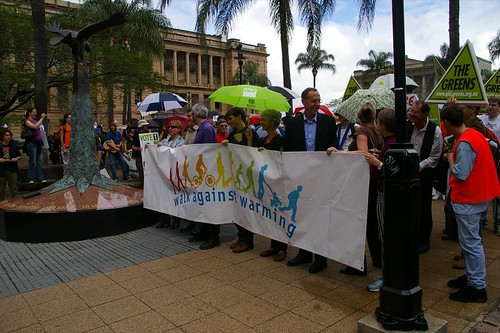By Aoife White, AP Business Writer
Saturday, February 10
From The World Link .com.
BRUSSELS, Belgium - Companies and individuals found responsible for environmental disasters should face criminal charges, the European Union's executive said Friday in proposing a measure that would punish serious offenses across the 27-nation bloc with up to five years in prison or a $975,000 fine.
Under the proposal, European courts would be allowed to put a company out of business and order those convicted to clean up the environment.
EU Environment Commissioner Stavros Dimas said those found responsible for such disasters as last year's dumping of toxic waste in Ivory Coast, in which 10 people died, should be punished.
“The recent hazardous waste disaster in the Ivory Coast shows how environmental crimes can have devastating effects on people and the environment,” he said.
The proposal faces a tough review by member governments and the European Parliament, which will have the final say on whether to adopt the measure.
Several nations, including Britain and Denmark, are reluctant to give the EU a say over such a sensitive national issue as criminal sanctions - laws traditionally drafted by national parliaments and not the EU institutions in Brussels.
EU Justice Commissioner Franco Frattini said the measure was “crucial to avoid criminals profiting” from different judicial systems among member countries. “We cannot allow safe havens of environmental crime inside the EU.”
Frattini said corporations were behind 73 percent of environmental crimes. “It is not enough to punish and prosecute managers. It's very important also that corporations pay fines,” he said.
Dumping toxic substances, shipping hazardous waste or trading in endangered species can have devastating effects on health and the environment, the EU executive said.
“In serious cases, criminal sanctions such as prison sentences should be applied, as they have a much higher dissuasive effect than, for example, administrative sanctions,” the proposal said.
This law would not cover oil spills, which would be included in a separate proposal on pollution from ships later this year.
Friday's proposals are a legal first for the European Commission. The EU's Court of Justice ruled in 2005 that the commission has the power to draft criminal laws and decide what constitutes a crime, notably in the area of the environment.
The bulk of the EU's proposals are already punishable under civil or criminal statutes in the United States. In December, for example, two oil tanker crew members were indicted by a federal grand jury after allegedly dumping fuel-tank sludge and oily bilge water into Northern California waters.
The EU draft law would force member governments to make sure a list of environmental crimes - all already banned by national and EU law - are treated as criminal offenses.
It would cover releasing hazardous substances that pollute the air, water or soil; illegal shipments or treatment of waste; the unlawful trade in endangered species or ozone-depleting substances; and running a plant either involved in “dangerous activity” or storing dangerous substances.
Prison sentences or maximum fines should be reserved for serious cases in which people have been killed or seriously injured, or where there has been “substantial damage to air, soil, water, animals or plants,” the EU said.
Environmental groups welcomed the plan but said the list of punishable crimes should be expanded.
“It's a good first step to ensure more liability and more oversight over what the governments are doing,” said Paul De Clerck, a campaigner for Friends of the Earth. “But it's difficult to say whether the EU member states will back the proposal. Countries like Britain may be cautious, because this could take away an element of national sovereignty.”
The 27 nations have different standards of what constitutes a crime against the environment, and the executive said many set inadequate punishments.
Dimas said Belgium, the Czech Republic, Denmark, Finland, Germany, Ireland, Slovakia and Sweden were among those countries with the highest standards. He said France, Italy, Malta and Cyprus would have to make the most changes to existing laws.
Co-Green leader in the European Parliament, Monica Frassoni, said EU-wide action to tackle environmental crime was overdue.
“We have to ... make sure that the legislation is unambiguous to ensure that criminals cannot hide behind the legal personality of companies to evade possible jail sentences,” Frassoni said.
British Conservative member Timothy Kirkhope said, however, that the penalties should be left to national governments.
Read the article.
Sunday, February 11, 2007
EU plan to punish environmental crimes
Posted by
National Enquirer
at
4:49 pm
![]()
Labels: crime, environment, environmental damage, fines, imprisonment, legislation, punish
Subscribe to:
Post Comments (Atom)





No comments:
Post a Comment